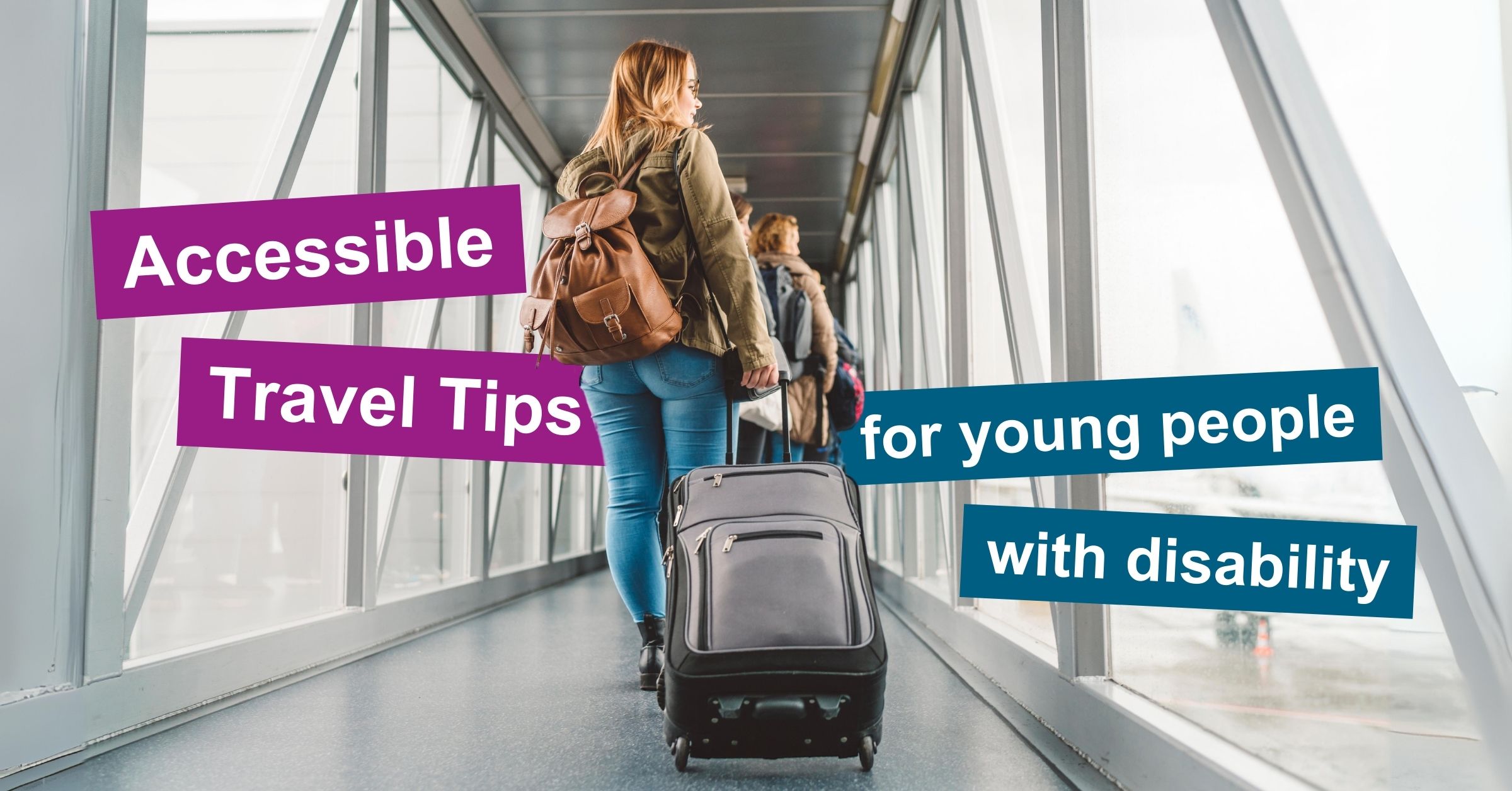Accessible Travel Tips
Caitlin Blanch breaks down how to prepare and what to bring when travelling as a young person with disability.
Throughout my travels, I’ve had both positive and negative experiences. Feeling prepared and knowing there are complaints systems in place has given me comfort when travelling away from home.
As a young person with disability, I’ve prepared this travel blog using my lived experience, with the insights of others and existing online sources. I want this to be a starting point for other young people with disability, and a reminder of things even I’ve forgotten when packing.
I hope this list is helpful for you. It’s designed to be added to, so feel free to make it your own!
What to pack
Whether you’re going interstate or jetting off overseas, it’s always a good idea to start with a simple packing list. Here are some things you might consider bringing along, depending on where you’re heading and for how long.
- Clothing – the basics include comfortable days outfits, pyjamas, underwear, socks and shoes, and – if necessary – swimmers and a raincoat. If you’re attending an event, check the dress code!
- Toiletries – it helps to make a specific list of the accessories you use in the bathroom. You might include toothpaste, a toothbrush, body wash and shampoo.
- Medication – make sure you have enough to cover the entire period you’re away from home.
- Extension cords and multi-plug outlets – these are especially useful for charging mobility aids and other essentials.
- Snacks – these can make a long trip much more enjoyable.
- COVID-safe supplies – masks and sanitisers will help you keep yourself and others safe.
- Important travel documents – this might include a ticket or booking information (printed out or on your phone), a concession card and/or personal identification, a passport, and a Sunflower lanyard which indicates to travel staff you have a non-visible disability.
Navigating mobility aids and accessibility
When it comes to mobility aids and other accessibility considerations, a bit of planning ahead can make a world of difference. Let’s go through some common scenarios.
- If you’re traveling with an airline, you can check their policies, inform them of your access needs, and make arrangements for checking in and using your mobility aid at the airport.
- If you’re attending an event at a venue you’ve never been to before, call or email them for their latest accessibility information or look at reviews online.
- If you’re visiting an Australian capital city or town, check online for useful ‘mobility maps’. You can save these to your phone or print them and keep them somewhere that’s easy to access.
- If you’re renting or driving a car in a new location, check the requirements for Disability Parking Permits.
Travelling from far away
Travelling long distances often means using public transport and airline services. Before setting off, it’s worth getting familiar with a company’s policies on the following:
- travelling with mobility aids (think size requirements, restrictions, and baggage weight requirements)
- guide dogs and assistance animals
- check-in procedures and priority boarding
- assistance with baggage collection and general airport accessibility
- navigation assistance (which may include support for getting on and off the aircraft or other transportation, getting to and from departure gates, accessing connecting routes, getting to bathrooms, and/or equipment transfer)
- subsiding a travel companion’s flights or public transport costs.
- accessibility in airline lounges
Unfortunately, delays and long queues are just a part of travel. Be prepared by:
- having someone to contact if things don’t go to plan
- saving a transportation service’s phone number
- checking and re-checking public transport routes and flight schedules to stay informed about delays or changes in arrival times
Attending events
Events with lots of attendees, like CYDA’s upcoming National Youth Disability Summit, can be a lot of fun – but also require a bit of prep. When travelling to an event, it’s important to:
- practice social distancing and regularly wash and sanitise your hands
- familiarise yourself with others’ access needs and communication styles
- tell others your own access needs and communication stytles
- be respectful and open-minded
- take breaks to rest, re-energise and look after yourself
- don’t forget to enjoy yourself!
Traveling, while rewarding, can also be pretty exhausting. Remember, if you need help you can always look at company websites, speak to a trusted friend or family member, or find the closest customer support desk.
Ultimately, though, this is a fantastic time to explore, meet new people, and experience something different, so have fun!

About the author:
Caitlin (she/her) is part of the class of 2023, completing her HSC in NSW. Caitlin is passionate about challenging the stereotypes of disability and empowering youth to lead with self-agency and confidence. She is interested in policy/law and advocating for an inclusive and accommodating Australia. Caitlin enjoys reading, binge-watching tv series, spending time with her chickens and sheep, and a good chai tea!

The Platform is our newsletter for young people with disability, featuring interviews, opportunities and news on the issues that matter to you!







